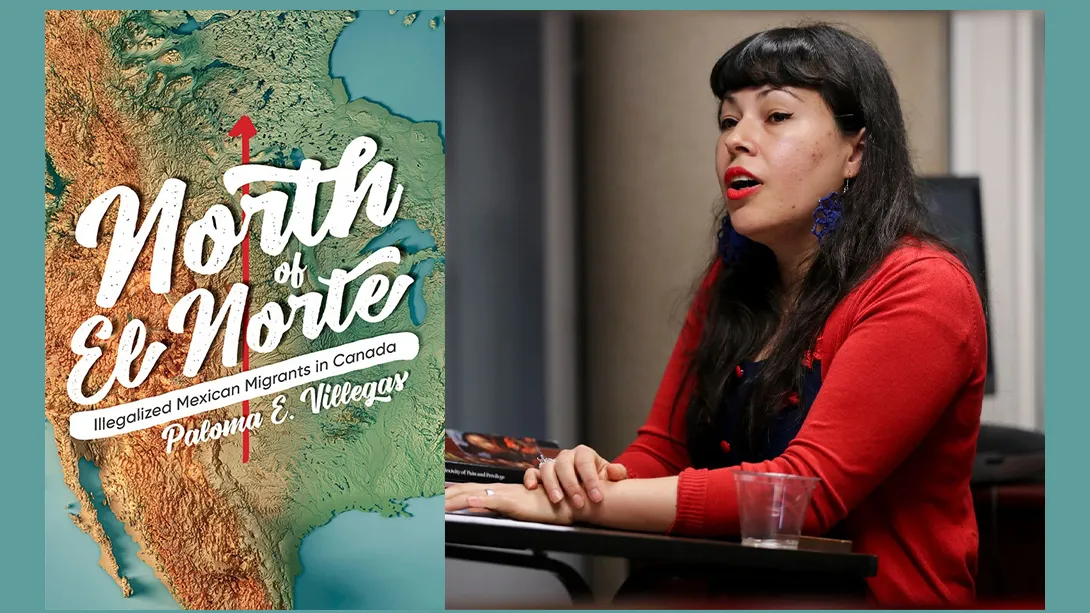Joe Gutierrez | CSUSB Office of Strategic Communication | (951) 236-4522 | joeg@csusb.edu

Paloma E. Villegas, a Cal State San Bernardino assistant professor of sociology, will join Immigration Initiatives at Harvard virtual Speaker Series from 9-10:30 a.m. Pacific Time (noon-1:30 p.m. Eastern Time) to present her book, “North of El Norte: Illegalized Migrants in Canada.”
The series welcomes prominent scholars, immigration experts, policy leaders and practitioners to Harvard University to share unique insights derived from research and lived experience.
Villegas’s book came out of her Ph.D. dissertation research that “focused on the experience of Mexican migrants in Canada who are in what is termed precarious immigration status,” which includes those who are undocumented and those seeking asylum. While much has been researched and written about Mexican migrants moving to the United States, “I wanted to track the migration route from Mexico to another site, and how it is similar or different to the U.S.”
The book aims to counter the stereotypes of immigrants as people who are taking jobs away, that they are long-suffering and will tolerate anything, that they are criminals – all of which are problematic, Villegas said. Instead, they are resourceful, strategic, and build networks. “And in the realm of possibilities they are able to negotiate, sometimes it doesn’t work, but sometimes they are able to improve their lives – ‘I’m going to try something out, it doesn’t work; I’m going to apply for this, no it didn’t work; I’m going to talk to someone else, I’m going try this ’ – as opposed to representations of immigrants as always static, just waiting for something to happen, those stereotypes that are problematic.”
One of the book’s chapters discusses how immigrants engage in art. “Participants in my research engaged in these amazing works like poetry and theater and dance,” Villegas said. “And a lot of it is to counteract those moments of exploitation, but also because we already come with these desires to make things beautiful in our communities.”
In 2018, Villegas came to teach at CSUSB, where many students share a background similar to hers. She was born in Mexico and came to California as a child. Many of her students are the first in their families to attend college. Villegas explains research shows that for first-generation students seeing someone they identify within academia is vital -- not only do they relate and connect with their professors but also to the curriculum their professors teach.
Outside of the classroom and her research, working with the students at CSUSB’s Undocumented Student Success Center is a priority. Villegas tries to attend as many of its events as possible, meeting with the students and just being available for them. She began a writing circle there, a time for the students to write about their experiences and share them in confidence. She hopes it has allowed the students to see that they are not alone in facing their challenges.